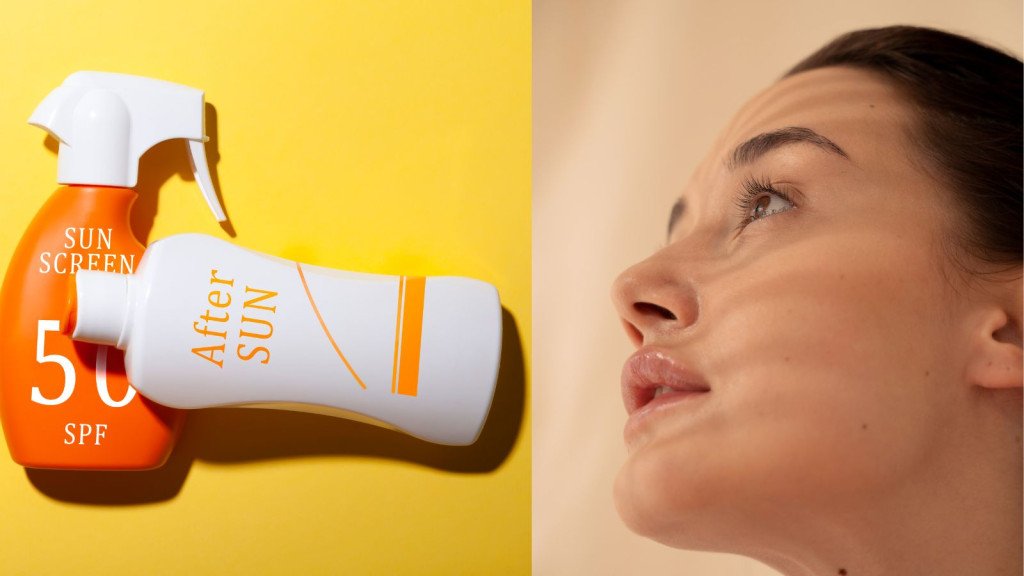Decoding Sunscreen: Mineral vs. Chemical Sunscreen - Choosing the Right Protection for You
Introduction:
With the ever-increasing understanding of the significance of sunlight security picking the best sun block can be frustrating. Mineral as well as chemical sun blocks are 2 main kinds on the marketplace each with its very own collection of advantages and also factors to consider. In this extensive overview we'll discover the distinctions in between mineral as well as chemical sun blocks, their efficiency, possible adverse effects plus exactly how to pick the most effective alternative for your skin.
Recognizing Mineral Sunscreen:
Mineral sun blocks additionally called physical sun blocks have energetic mineral components such as zinc oxide along with titanium dioxide. These elements work by creating a physical barrier on the skin's surface and dispersing harmful UV rays away from the skin. The main points about mineral sunblock are as follows:
Broad-Spectrum Protection: Mineral sunblocks are dependable in preventing sunburn, early aging, and skin cancer cells because they provide broad-spectrum protection against UVA and UVB radiation.
Mild Formulation: Mineral sun blocks are typically thought about ideal for delicate skin kinds due to the fact that they consist of non-active minerals that are much less most likely to create inflammation or sensitive responses.
Instantaneous Protection: Unlike chemical sun blocks, which require time to take in right into the skin mineral sun blocks give instant defense upon application, making them suitable for on-the-go usage.
Reef-Safe: Since it is unknown that the energy components of mineral sunblocks would harm aquatic or reef environments, they are typically regarded as reef-safe.
Comprehending Chemical Sunscreen:
Chemical sun blocks have natural (carbon-based) substances such as oxybenzone, avobenzone, octisalate plus octocrylene. These components function by soaking up UV rays together with transforming them right into warm which is after that launched from the skin. The following are the main points about chemical sunblock:
Broad-Spectrum Protection: Like mineral sun blocks chemical sun blocks use broad-spectrum security versus UVA plus UVB rays when developed appropriately.
Light-weight Texture: Chemical sun blocks usually have a lighter, much more cosmetically sophisticated structure contrasted to mineral sun blocks making them liked by those with oily or acne-prone skin.
Possible Irritation: Some people might experience skin inflammation or sensitive responses to the energetic components in chemical sun blocks especially those with delicate skin.
Environmental Concerns: several chemical sunblock active ingredients, such octinoxate and oxybenzone, have been linked to reef whitening and are either restricted or outlawed in several areas to safeguard aquatic environments.
Picking the Right Sunscreen for You:
The following factors should be considered while deciding between chemical and mineral sunblocks to determine which option best suits your needs:
Skin Type: If you have delicate or responsive skin mineral sun block might be the much safer option because of its mild solution. However, you may prefer the lightweight appearance of chemical sun block if you have oily or acne-prone skin.
Sunlight Exposure: Whether it's chemical- or mineral-based, choose a sunblock with waterproof properties and broad-spectrum protection if you spend a lot of time outside or engage in outdoor activities.
Ecological Impact: If you're worried regarding the ecological effect of sun block active ingredients on coral reefs plus marine life select a mineral sun block or seek chemical sun blocks created without oxybenzone and also octinoxate.
Personal Preference: In the end, it comes down to personal preference when choosing between chemical and mineral sunblock.Trying out various solutions to discover one that really feels comfy on your skin and also fits flawlessly right into your skin care regimen.
Tips for Sunscreen Application:
Despite whether you select mineral or chemical sun block comply with these pointers for efficient sunlight security:
Apply liberally: Make sure all exposed skin areas are fully covered with sunblock. For adults, this often means applying one ounce, or roughly the size of a shot glass, to the entire body.
Reapply Regularly: Reapply sun block a minimum of every 2 hrs or extra regularly if swimming or sweating profusely.
Seek Shade: To reduce direct sun exposure, seek shade wherever possible during the hours of peak sunshine (10 a.m. to 4 p.m.).
Put On Protective Clothing: In enhancement to sun block put on safety clothes, hats, as well as sunglasses to additional shield your skin from dangerous UV rays.
Conclusion:
Both mineral as well as chemical sun blocks use efficient defense versus the sunlight's damaging rays, yet they vary in solution, application, along with prospective adverse effects. Consider your skin kind ecological worries, coupled with individual choices when selecting in between both. Eventually one of the most vital facet of sunlight defense corresponds use sun block together with various other sun-safe techniques to safeguard your skin versus sunburn early aging, as well as skin cancer cells.








